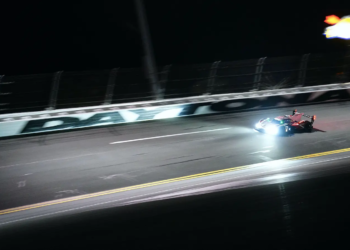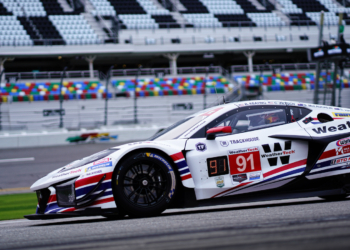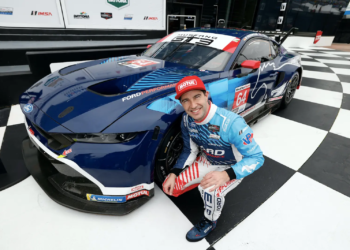Just like that, it could be over. Without any disrespect intended, and despite his considerable success in 2016 and before, for a lot of us the prospect of a Nico Rosberg drivers' championship has never entirely shaken its air of unreality. Yet when this forthcoming one is done it could be absolute reality.
And the task required of him to do the confirming is simple. He needs to win. Or rather, the task is complicated. And not merely as F1 wins can never be said to be easy. It particularly cannot be said to be easy this time given where this one is taking place.
Granted there are plenty of things about this Interlagos venue for this weekend's Brazilian Grand Prix to tilt matters Nico's way. He's won in the last two visits, both from pole. In his own words he has "usually been pretty quick there".
While his title rival and team mate Lewis Hamilton even with his superb recent form – winning the last two with Nico barely within shouting distance – has neither triumphed nor even started from the front of the grid in Brazil before. While, if you're a fan of historical trends, since Interlagos was shifted to a slot near or at the season's end in 2004 it has been the scene of titles being clinched aplenty – 2005, 2006, 2007, 2008, 2009 and 2012.
But it's all about where we are, as outlined. If Lewis needs the unusual to get him into proper title contention – and remember that not even two wins from the remaining two for him will be enough necessarily – then out of all the modern circuits Interlagos is possibly the first you'd pick to get such an outcome. Even ahead of that perennial outlier of Monaco. This Sao Paulo venue has shown itself over time to be the F1 equivalent of the Bermuda Triangle. The main thing to expect is the unexpected. Sometimes the utterly unforeseeable.
Some of this characteristic can be explained. Over the last decade or two Interlagos perhaps is the track on the calendar that most has retained its old school challenge. Things to hit often are near at hand, not least in the flat out but curving and undulating 'Boxes' section which is lined by an unforgiving concrete wall. In a similar sense it is narrow and bumpy by modern standards and the kerbs are forbidding. It all means that even slight errors can be punished definitively at a stroke (in a rare attribute in the current sport).
Allied to this safety cars that can turn the race onto its head are a fairly common feature. The track can be tough on equipment too, with the many undulations and acceleration zones testing gearboxes and engines (and both will be close to the end of their respective lives near the campaign's end) as well as that the turbos are worked harder in the altitude.
The Senna 'S' at the start of the lap is often the scene of dicing and grief, not least the first time through on lap one. Finding a set-up balance can be tricky too, given the circuit combines an incongruous twisty middle section and full-pelt blasts elsewhere.
Furthermore this is the shortest circuit on the calendar on lap time, and it contributes to a considerable sense of claustrophobia and intensity. This has implications both for finding space in practice and for a qualifying lap as well as for picking through backmarkers in the race. The short lap usually ensures qualifying is tight on the watch too with minor errors therein another thing punished pitilessly.
Rain also is a perennial threat. Both deluges and sprinkles have been known when cars circulate Interlagos, and based on experience either has an equal ability to shuffle the pack. In either case they tend to arrive suddenly too. Long-range forecasts have plenty of rain around the place this weekend.
Yet even with all of this some of this Brazilian track's Bermuda Triangle ways simply are inexplicable. Where else would an F1 qualifying session have to be ended early due to suspended advertising hoardings falling onto the track? Where else has a driver taken a long-awaited debut victory, only to not have it confirmed for a week due to a timing glitch?
Where else are power cuts in the paddock so common? Where else does rain usually result in commentary boxes and the like being flooded? Where else has a driver been denied an apparently sure title at the very last due a technical delay, that never has been fully explained, slowing him to a cruise for half a lap? Where else has a title destination been pivoted with literally two corners left, thanks to a marginal intensifying of the rain? Where else has a title been won after a first lap whack that by rights should have ended his day?
Only Interlagos.
It can be the most rewarding and the most cruel of companions, including for those on the cusp of titles as outlined. Nico surely will be mindful of both prospects.
The cramped paddock facilities – the track layout not being the only thing that ensures local claustrophobia – are also very much a throwback, and there's little indication that the long-promised new pit and paddock will be with us this time. In another local special, the circuit has been resurfaced many times so to remove the bumps but has only apparently each time moved them elsewhere. It used to be the case that every year just about the perilous pit lane entry would be revised to make it safer, but usually would serve only to find a way to make it yet more perilous.
And even the rain can have a back-to-front logic at Interlagos. One memorable case was in 2003 when a river from some source in a nearby spectator bank ran across the track throughout, which not only eliminated several cars but meant that all had to run on inters even though for a lot of the way 95% of the tour was bone-dry. Another was in 2012 when only Jenson Button and Nico Hulkenberg twigged that staying out on slicks as the rain fell was somehow the quicker option, and they led by half a lap for a time as a consequence.
It's easy to forget with the excitement of Nico standing on the championship brink that equally Lewis could leave Brazil as the table leader himself. And such are this track's Bermuda Triangle tendencies you would be reluctant to dismiss that prospect out of hand. But somewhere therein too lies the rub. The trouble for Lewis is that the Bermuda Triangle striking him will likely end his title chances for the year altogether. To adapt from the inappropriate source of the IRA's statement after the Brighton Bombing – for this season's remainder Nico only needs to be lucky once; Lewis must be lucky always.
Further befuddling matters, it might not be all about the Mercedes pair up front this weekend, as a compelling case can be made for the Red Bulls getting among them. Not only have the RB12s been creeping ever closer to the Mercs in recent times, this twisty track with plenty of quick turns should suit the Red Bull especially and indeed once upon a time the Bulls were a stick-on for the win here, triumphing four times from five before the start of the hybrid era.
As for Ferrari, things may remain iffy as always. We know that there is pace in the car but equally we know too based on experience that it will likely not be put into full effect for all parts of the weekend, particularly in the final act of qualifying. At least the Italian can assure itself that the quali order in Brazil is less critical than usual plus that the various things mentioned can shuffle the order. And if the cards fall the Scuderia's way, as witnessed in Mexico the red car can look impressive if in clear air out front.
As for the rest, Nico Hulkenberg will be worth keeping an eye on too – he has a good record at Interlagos particularly if the rain falls and can boast in such circumstances a pole in 2010 and leading in fine style in 2012. Last year when it was bone dry too he qualified fifth and finished sixth. The Hulk also has been in his old mighty form since his Renault move for next season was confirmed.
Another worth watching is Felipe Massa, and not simply out of emotion given this is his final home Grand Prix – he is another that specialises here.
Strategy at Interlagos also has an appropriate corkscrew quality. Multi-stop races – of two or three halts – are the norm here, reflecting that tyre degradation often is high, overtaking is relatively straightforward and the pit lane exit is rather generous, by-passing the first three turns (on the flip side though a three-stopper will likely give you more backmarker traffic). All of the top three home last year – the Merc pair and Sebastian Vettel – stopped three times, though in large part because Seb rolled the dice by trying an extra stop and the Mercs covered him off.
Possibly reflecting this Pirelli has bucked its usual trend of bringing a compound one softer as its extra one for this season by this time bringing one harder, so the hard compound joins the soft and medium of previous visits. It'll be intriguing to see how the hard compound performs, particularly as in 2014 the compound was ditched at the last minute as it was felt it wouldn't provide enough grip and therefore be potentially "dangerous".
Yet whatever is the case – and whatever the foibles – this weekend we can all be glad that it's Interlagos. The event always attracts a large, noisy and passionate crowd of genuine F1 supporters, who are able to sit close to the action; overhanging the circuit at some points it seems in the natural amphitheatre setting. This has continued to be the case even in the absence of a consistently front-running Brazilian driver in recent times. As outlined too it has a old school charm that is inimitable.
Just as most things are inimitable about F1 at Interlagos. And both Merc pilots will be wary.






